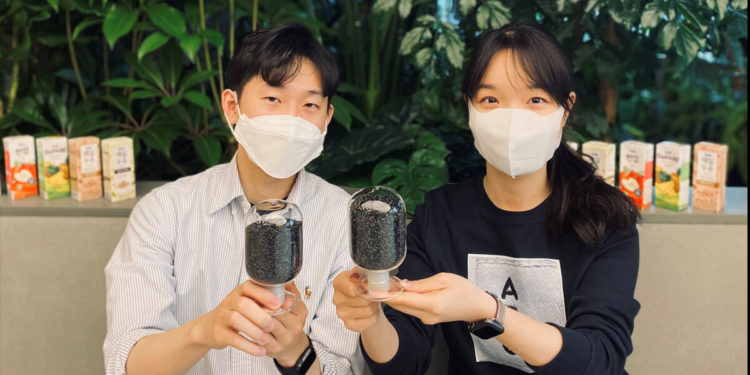SK Global Chemical Co., an SK Innovation subsidiary, announced that it would develop a resource circulation system for aseptic packaging. The South Korean chemical company collaborated with Maeil Dairies, one of the country’s leading dairy companies, and Jushin Trading, an aseptic waste collecting, recycling firm. SK Global Chemical also partnered with Tetra Pak Korea, the world’s first aseptic material technology developer.
Many officials from the four companies attended the signing ceremony, including Kang Dong-Hoon, SK Global Chemical’s Green Business Group Head. Other executives who attended include the VPs of Maeil Dairies and Tetra Pak Korea and Jushin Trading’s CEO. According to the companies, each partner plays a vital part in the project, from material manufacturing, product distribution, and business-to-business.
When the development starts, SK Global Chemical will become the first company in South Korea to establish aseptic recycling technologies. The partners also expect their combined efforts to further strengthen the plastic waste recycling ecosystem in the coming years.
Recycling Composite Material in Aseptic Packaging
The participating companies joined the project to innovate recycling methods for composite material in aseptic packaging. Besides laying the foundations for a more expansive resource circulation ecosystem, the project aims to recycle more than 3,000 tons of aluminum materials per year. The project also aims to reduce around 19,000 tons of carbon dioxide emissions annually, equal to planting over 200,000 trees.
Moreover, SK Global Chemical’s aseptic packaging circulation system would extract the plastics and aluminum composite materials applied to product containers. Notably, these high-quality composite materials, often used in aseptic juice or milk packaging, effectively block oxygen and ultraviolet light. Due to these properties, the global aseptic packaging demand increases, with the distribution sector largely contributing.
Since aseptic packaging consists of composite materials and paper, SK Global Chemical and its partners would experience difficulty in recycling. Previously, recycling firms only circulated the paper wastes, turning them into kitchen towels while incinerating or landfilling the composite materials. However, the four companies’ aseptic packaging circulation system recycles materials 100%, significantly reducing environmental impacts from incinerators and landfills.
Creating a Circulation System Through Cooperation
Under the agreement, Maeil Dairies would manage an aseptic packaging collection system and adopt composite material-made boxes. On the other hand, Tetra Pak Korea would provide recycling facilities that extract aseptic materials. After recycling the papers, Jushin Trading would deliver the accumulated composite material byproducts to SK Global Chemical. Lastly, SK Global Chemical would utilize the composite material to manufacture recycled plastic materials, including food and beverage containers.
“SK Global Chemical will provide a technology-based solution for its diverse business partners to be involved in green businesses, accelerating the establishment of the plastic waste circulation system,” said Kang. The partners also said that they would establish the new comprehensive circulation system by promoting cooperation. Separately, in February, SK Global Chemical cooperated with LogisALL to upcycle damaged pallets, reduce logistics waste, and promote green practices.







